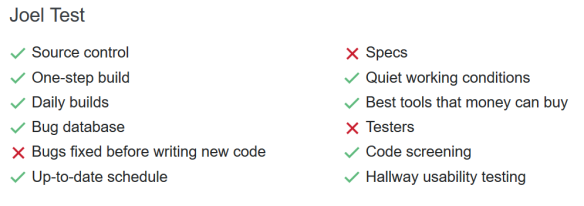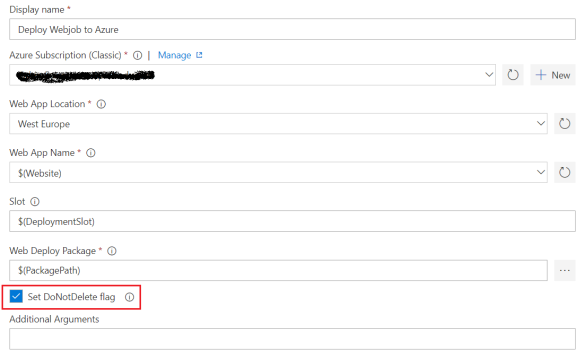Sometimes all it takes is a few buzzwords such as microservices, serverless, cloud, DevOps etc for us, software developers, to get excited when reading a job offer – we all like to work with the latest trends, tools and programming languages, but that is not enough if you you want to work on a good team with good practices. Who doesn’t dream about working for a company with a great culture and engineering practices such as Amazon, Microsoft, Facebook, Google or Netflix? I surely do!
One of the mistakes that some software developers do when applying for a new job is not trying to understand what is the level of quality of the current software team of the company you’re applying for – I confess I did that mistake in the past! The technologies might be cool but that doesn’t say much about the team and/or working culture. Just to give you an idea, I worked recently for a company that was using cool technologies but didn’t even have a build server when I started working there! Nor were they using any methodology such as SCRUM. Luckily things improved a bit but it took a while (too long, IMO) before that happened.
So if you want to evaluate the quality of a software team you need to make the right questions – but what are these questions? You might start with the Joel Test, which contains 12 yes-no questions to rate the quality of a software team:

Even though the original blog post was written on August, 2000 these questions are still very relevant in 2018, and this test is being used in StackOverflow Jobs portal (where I took the screenshot from), which contains some of the best software development job descriptions out there IMO. I’d love to see these test results in every single software development job description out there!
Other questions you might ask (some are related to Joel Test):
- Which version control system do you use?
- Do you write automated tests (unit tests, integration tests, etc)?
- Do you use Continuous Integration/Continuous Delivery?
- Do you do code reviews and/or pair programming?
- Do you use design patterns/SOLID principles?
- Which tools do you use?
- Which methodologies do you use? SCRUM? Lean? Kanban? XP? Others?
- Do you offer technical training to the team members or allow them to attend technical conferences?
- Do you have technical meetings?
- (Any other questions that might give you an idea about how the team works or is organised)
That’s it! Remember that a job interview works two ways:
- A company wants to find the best candidate for a given position
- A candidate (you!) wants to find the best company/team
So the interview it’s not only about answering some technical and HR questions, you need to ask the right questions about the company and working culture too. Don’t be afraid to prepare some sort of check-list containing some of the questions I mentioned above (and others that might be important to you) and ask them somewhere during the interview process – or, as an alternative, send an email asking someone (such as a team leader) to answer them. If it is a good company with good people I’m pretty sure they will get back to you!
This post is on how to rate the quality of a software team but there are many other questions you can (and should!) ask on an interview process – for example, take a look at The Programmer’s Bill of Rights regarding working conditions for software developers.
Good luck!

